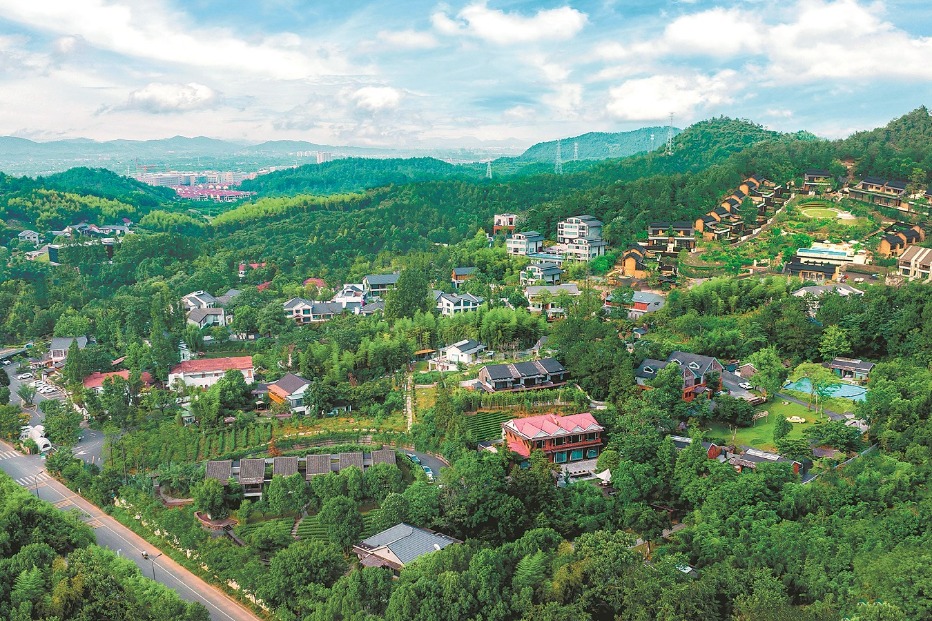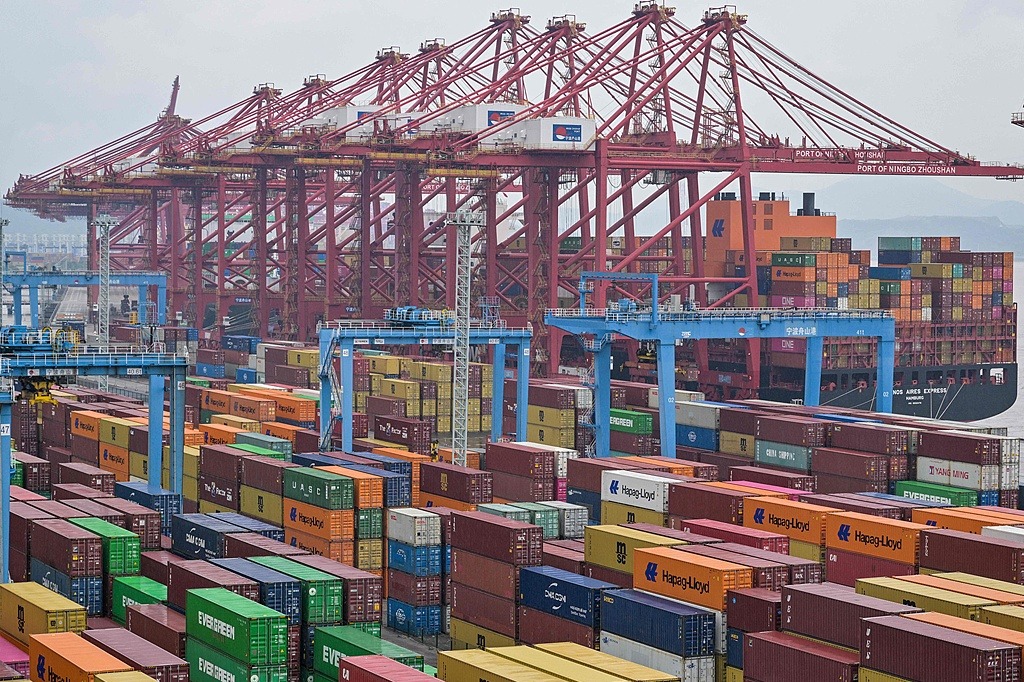Outbreak exposes racial bias in US

Editor's Note: Accounting for the highest numbers of infections (more than 1.5 million) and deaths (over 90,000), the United States has become the epicenter of the novel coronavirus pandemic. Yet, more painfully, the pandemic has exposed how vulnerable and helpless some groups, including black people, Hispanics, the elderly, children, the disabled and homeless, are in the grossly unequal American society. Following are the views of two experts on the issue, which were first published in People's Daily and Guangming Daily:
A society is known by the way it treats vulnerable groups
The US prides itself as the "defender" of human rights and the "standard-bearer" of democracy, but the novel coronavirus pandemic has exposed the pathetic human rights situation in the US, especially for vulnerable groups such as the elderly, children, the disabled and the homeless.
Whether the vulnerable groups' human rights are properly protected is not only the best criterion to judge the human rights situation in a country, but also key to determining the extent of its political civilization development.
During any major public health crisis, vulnerable groups have the lowest risk prevention and control capacity, and so their government needs to take comprehensive and effective measures to protect their rights to life, health and livelihood. But in the US, the protection of vulnerable groups' human rights during the pandemic is glaringly inadequate.
First, the overall human rights of the elderly in the US are under threat. As United Nations Secretary-General Antonio Guterres said in a policy report on COVID-19, which was released on May 1, the elderly have a higher fatality rate among COVID-19 patients, so governments have to make sure they enjoy the same rights to life and health as young people.
However, due to poverty, high testing and treatment costs, structural deficiencies resulting from chronic underinvestment in healthcare, and the US administration's delayed and ineffectual response to the pandemic, senior citizens in the US have become the most vulnerable group. According to NBC News, as of May 8, more than 19,000 people had died of COVID-19 in nursing homes in the US. In fact, nursing homes are becoming a "black hole" of COVID-19 due to the lack of timely and transparent disclosure of information about the epidemic by governments at all levels and the relevant institutions. Worse, many in the US say the value of life and the meaning of survival for the elderly have changed.
Second, the rights of children in the US have been seriously compromised. A Brookings Institution report says that since the COVID-19 outbreak, 20 percent of children in the US have been facing hunger as they lack access to enough food due to the poverty caused by a sharp drop in their parents' or guardians' incomes. Also, domestic violence against children is on the rise, because of poverty and home quarantine.
And third, the protection of human rights for the disabled and homeless in the US is structurally weak. Despite being one of the most developed countries in the world, the US has refused to ratify the UN Convention on the Rights of the Child; International Covenant on Economic, Social and Cultural Rights; International Covenant on the Rights of Persons with Disabilities; and other international human rights conventions aimed at protecting vulnerable groups. Not only are people with disabilities often discriminated against when it comes to testing and treatment, but they are also more likely to be refused employment and thus stay or slip into poverty in the face of the severe economic downturn.
The lack of adequate protection of human rights for vulnerable groups during the outbreak has once again exposed the social ills and institutional defects in the US. So it is time for the US to swallow its pride and abandon its prejudices, stop pointing fingers at other countries, and instead take care of all US citizens, whether rich or poor.
Qian Jinyu, a professor at the School for Human Rights Studies, Northwest University of Political Science and Law, Xi'an
Vulnerable groups' rights to life and health compromised
On April 2, Michigan's Department of Health and Human Services released data on the ethnic composition of confirmed and fatal COVID-19 cases in the state. The data showed African Americans, who make up just 12 percent of the state's population, accounted for 33 percent of the confirmed cases and 40 percent of the deaths. The two figures were recently updated to 32 percent and 41 percent respectively.
Some media reports have said that in US cities with large African-American populations, such as Chicago, Detroit, Milwaukee and New Orleans, the rate of coronavirus infection among African Americans is disproportionately high. The data from New York City, the epicenter of the outbreak in the US, are even more striking. The fatality rate per 100,000 people infected with the virus is 243.6 for African Americans, 237.7 for Hispanics, and 121.5 for white people. In New York City, African Americans account for 30.2 percent of the deaths and Hispanics 30.5 percent.
The pandemic has highlighted the racial inequality African Americans and Hispanics face in terms of rights to life and health. Compared with white people, the rates of heart diseases, stroke, asthma, obesity, high blood pressure, diabetes and cancer have always been higher among African Americans, making them more vulnerable to infection and death by COVID-19. Such racial health disparity is largely the result of the longstanding systematic racial discrimination in healthcare.
The outbreak has also exposed the racial inequality African Americans and Hispanics face in economic and social rights. Unstable jobs, low incomes and lack of savings mean members of such groups have to venture out during the outbreak to work, making them more susceptible to infection.
An investigation by National Public Radio in Tennessee found that coronavirus tests in Memphis have been conducted mostly in wealthy, predominantly white suburbs, rather than in low-income, African-American neighborhoods. Such tests in Nashville, too, have been conducted mostly at clinics in white neighborhoods, while testing facilities in minority neighborhoods have been slow to receive test kits and personal protective equipment, exposing the gross discrimination minority ethnic groups face in accessing to healthcare facilities.
Hao Yaming, a research fellow at the Center for Human Rights Studies, Nankai University, Tianjin
The views don't necessarily represent those of China Daily.
Today's Top News
- AI enables sustainable energy transition
- Smart competition can shape shared progress
- Nation capable of sustaining trade growth
- Sovereign wealth funds ramping up allocation to Chinese assets
- Common ground prevails over differences: China Daily editorial
- China's foreign trade up 2.9% in H1






























